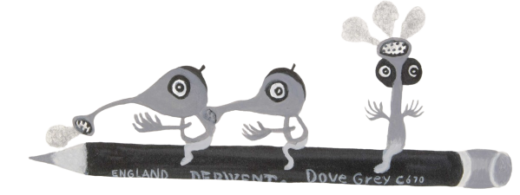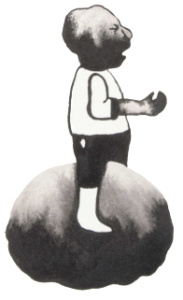 The website Klup.nl contains information about car company Zwartepoorte. This information is correct. The court in interlocutory proceedings in Amsterdam has ruled that Klup.nl has to be adjusted anyway. Why? In its search results search engine Google combined pieces of information of Klup.nl in such a way that these search results created the impression that Zwartepoorte was bankrupt. This recently published judgment (in Dutch) of the Court of Amsterdam in preliminary relief proceedings of 13 May 2009 is, in my view, an undesirable limitation of the freedom of expression of website holders.
The website Klup.nl contains information about car company Zwartepoorte. This information is correct. The court in interlocutory proceedings in Amsterdam has ruled that Klup.nl has to be adjusted anyway. Why? In its search results search engine Google combined pieces of information of Klup.nl in such a way that these search results created the impression that Zwartepoorte was bankrupt. This recently published judgment (in Dutch) of the Court of Amsterdam in preliminary relief proceedings of 13 May 2009 is, in my view, an undesirable limitation of the freedom of expression of website holders.
These proceedings also concerned a sister site, Miljoenhuizen.nl, where the same information could be found. However, the claims with respect to this website have been denied, because the website was not registered in the name of one of the defendants.
Bankrupt or Not Bankrupt?
Zwartepoorte is a BMW dealer. At some time, there were wrongful rumors that the company would be bankrupt. According to director John Zwartepoorte, the rumors were the result of search results on Google. When a search was made with the words “Zwartepoorte” and “failliet” (=bankrupt), Google generated under the link to Klup.nl a summary with, inter alia, the text (in Dutch): “full name: Zwartepoorte speciality BMW…This company has been declared bankrupt, it has been taken over by the Motorhuis (…)”. The relevant internet page of Klup.nl, however, did not mention that Zwartepoorte would be bankrupt. Klup.nl is a website that offers information about, inter alia, houses and businesses. The website contained correct information about Zwartepoorte in one part of the page and information about the bankrupt company Boot Rialto in a separate part. Google had combined small parts of the page, with the above-mentioned result. Zwartepoorte had summoned Klup.nl to adjust the website in such a way that the search results would no longer suggest that they were bankrupt. Klup.nl refused to adjust its website.
Klup.nl Responsible for Text on Google
The court summarized the situation as follows: “(…) The display of both texts (…) is not unlawful in itself. (…) It is, however, plausible that the awkward summary by Google of these two independent texts may create the impression among a large number of people that Zwartepoorte has been declared bankrupt.” The Court subsequently ruled that Klup.nl must adjust the set-up of its website in such a manner that the search results of Google no longer create the incorrect impression that Zwartepoorte is bankrupt. According to the Court, Zwartepoorte’s interest (prevention of damage) outweighs Klup.nl’s interest, since the website can be adjusted rather easily, is meant to generate income and is designed to yield high search results with Google.
According to the Court, the scope of responsibility of a website holder does not extend to the website holder having to check continually whether possible damaging search results are created: “It only means that if as a result of the set-up of the website search results cause damage to the party that is mentioned on this website, and the injured party requests the website holder to remove this damage, it must be considered what weighs most heavily – the freedom of expression of the website holder or the damage of the injured party. This test need not always be to the advantage of the injured party.” The consideration of the Court in this case is indeed to Zwartepoorte’s advantage.
Undesirable
In my opinion, the outcome of the judgment is undesirable and on a number of points the arguments are incorrect, particularly with respect to the attribution of the Google text to Klup.nl, the meaning of search results and the weighing of interests made.
Attribution Google text
Klup.nl has been designed in such a way that it scores high in search engines such as Google. The Court in preliminary relief proceedings ruled that as a result an “own responsibility” is created with respect to search results and thus actually attributes the distorted display by Google to Klup.nl. This reasoning deviates from recent case law on attribution of third-party publications and ignores the reality that in website design, it is more or less standard to the effectiveness with respect to search results into account.
Recently, the Dutch Supreme Court made it clear in the Quackery judgment (in Dutch) that the distorted display of another person’s information in publications must not be attributed quickly to this other person. In the Supreme Court’s view, it may not be attributed to the Dutch Association against Quackery that various media – when quoting the Association – do not publish its careful, neutral definition of quackery, as a result of which the public would possibly attribute a too negative meaning to the word. The same should apply to a website holder who provides correct information himself, but is quoted by a search engine in a distorted manner.
Moreover, it is inherent to the Internet that websites must try to score high in the results of search engines. Almost every website tries to do so. Would all these websites be responsible for the display in search engine results, or does this responsibility lie with websites that happen to be successful and score high in the results only? In my view, both lines of reasoning are incorrect. Such responsibility requires a lot more. The website itself must have clearly paved the way for the incorrect display. However, it does not appear from the judgment at all that the choices made by Klup.nl in order to obtain good search results have caused the distorted display by Google.
Meaning of Search Results
The rumors that Zwartepoorte would be bankrupt must have come from persons who do not understand how search engine Google operates. This aspect was neglected in the judgment.
Search results only reflect a selection of the information on web pages and therefore do not necessarily contain coherent information. This is understood by the average internet user. In order to actually see the information, you have to click through to the web page itself. In that sense, the search results of Google do not even suggest that Zwartepoorte would be bankrupt. Zwartepoorte has given some examples of individuals who have interpreted the search results this way and apparently did not bother to look at the website concerned. These individuals have no understanding of the search results, but this should not be attributed to Klup.nl.
Fundamental-Rights Character of the Freedom of Expression
Even if Klup.nl would have a responsibility of its own for the display of the search results of Google, this does not mean that it must also adjust its website. The interests must be weighed. It is true that the Court in preliminary relief proceedings mentioned the freedom of expression of Klup.nl, but when weighing the interests it short-changed the fundamental-rights character thereof.
Firstly, the court has turned things upside down by indicating, as cited above, that the test “need not always be to the advantage of the injured party“. The court apparently takes the interest of the injured party as a starting point. However, the freedom of expression should be the starting point, as was recently confirmed by the European Court of Human Rights it its Karako-judgment. Subsequently, it has to be determined whether an interference is acceptable in a specific case.
Secondly, the Court has observed that the adjustment of Klup.nl that is necessary to prevent the distorted display in the Google results is quite simple. Apparently, this would be an argument to attach less weight to the freedom of expression. This is not correct. It shows that a restriction of the fundamental right is easy to realize, but this does not say anything about the value of the fundamental right itself. After all, the freedom of expression also includes the possibility to determine the form of the expression yourself. This right is restricted here.
Thirdly, the Court has emphasized that the intention of the website is to earn money. The freedom of expression, however, also applies to commercial statements. Certainly if the statement itself is not incorrect or offensive, the commercial character is no justification for a restriction of the freedom of expression. In this respect the Court seems to try and rule in line with the Techno Design-judgment (in Dutch). In that judgment the Court of Appeal of Amsterdam also took into consideration that Techno Design acquired income with its website www.zoekmp3.nl. The difference, however, is that Techno Design, as the Court of Appeal considered, structurally and consciously made use of the availability of unlawful mp3 files on the Internet and that its turnover was largely based thereon. This is not the case with Klup.nl and the search results with Google.
Conclusion
Klup.nl must adjust its website because of search results generated by Google, and not by Klup.nl. In my view, this restriction of the freedom of expression is, as already stated, undesirable. Klup.nl has announced that it will lodge an appeal.

